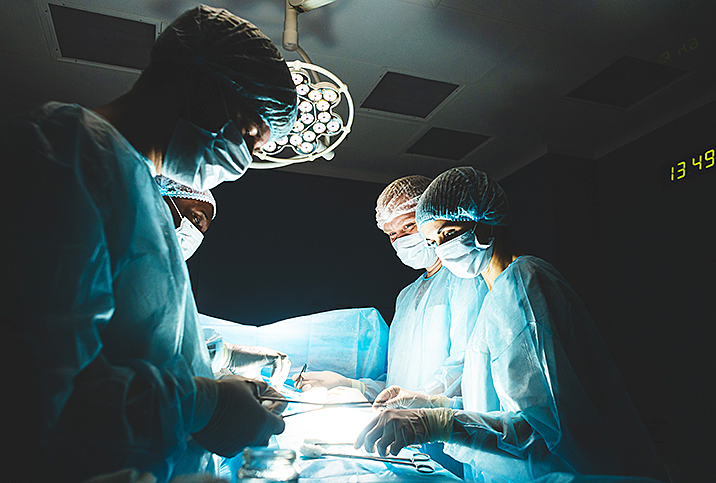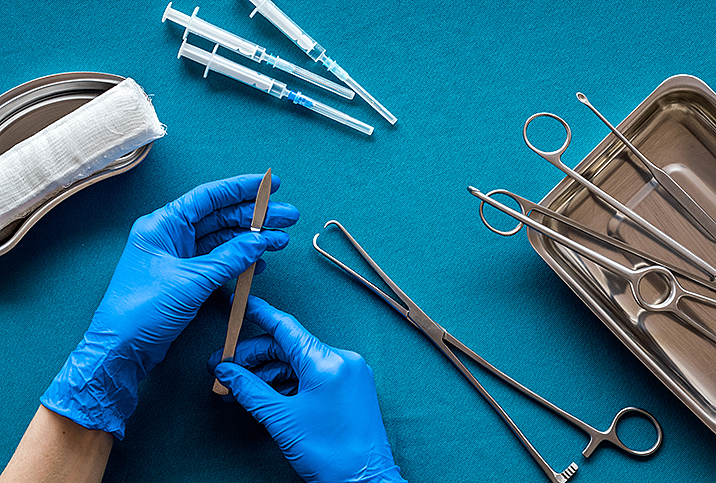How Safe Is Plastic Surgery?

Once a privilege of the wealthy and elite, plastic surgery is now more accessible than ever thanks to advances in medical technology. However, it's important to remember cosmetic procedures aren't without risk.
Here's how you can make an informed decision before going under the knife.
Overview of plastic surgery
When most people think of plastic surgery, they think of cosmetic surgery, a procedure performed on a person's face or body to improve their appearance. Another form of plastic surgery is reconstructive surgery, which aims to repair or restore bodily functions.
Cosmetic procedures are generally considered elective, or voluntary, and range from invasive to noninvasive. Invasive surgery involves incisions, anesthesia and longer recovery times than noninvasive surgery, which may use lasers or injections.
Examples of common invasive plastic surgeries include breast augmentation, eyelid surgery, face-lifts, liposuction and rhinoplasty (nose job). Noninvasive cosmetic procedures include anti-aging injections, chemical peels, laser hair removal and soft-tissue fillers.
You may opt for reconstructive surgery to correct abnormalities caused by trauma, congenital issues or an illness. Reconstructive surgeries are usually considered medically necessary. Reasons for reconstruction include facial bone fractures, cancer, cleft palates, hand surgery, scar revision and tumor removal.
Risk factors
Some people mistakenly believe that plastic surgery isn't as dangerous as other types of surgery. That's far from the truth, as problems may arise from the procedure itself, anesthesia complications or poor wound healing.
Cosmetic surgery performed in a physician's office (rather than in an inpatient setting) may limit your access to resources in the event of a severe complication. Some of the more serious issues include: anesthesia reactions, bleeding, blood clots, hematomas (collection of blood causing bruising or swelling), infection, necrosis (tissue death), nerve damage (numbing or tingling) and scarring. In rare cases, plastic surgery can also lead to death.
Risk factors are unique to the individual based on their current health and health history. If you have a chronic condition such as diabetes, obesity or heart disease, you might have a higher chance of severe complications. Smoking interferes with the body's ability to heal, so quitting before surgery is always recommended.
How to reduce your risk
Understanding your health risks empowers you to take steps to minimize complications. Do your best to eat well and stay active before your procedure for a faster recovery. Take time to choose your surgeon carefully by interviewing two or three surgeons before making a decision.
Cosmetic surgery is a branch of plastic surgery, and there are differences in education and training among the surgeons in each category.
An experienced practitioner will help ensure your safety and satisfaction with the results. You'll want a surgeon who specializes in your desired procedure. They should be board-certified and belong to one of these professional organizations:
- American Academy of Facial Plastic and Reconstructive Surgery
- American Society of Plastic Surgeons
- American Academy of Dermatology
- American Society for Dermatologic Surgery
Ask to see before-and-after pictures of former patients so you can develop realistic expectations. It is important to feel 100 percent comfortable asking the surgeon questions and sharing any concerns.
If you're having surgery outside of the physician's office, find out about the operating facility and the anesthesiologist's credentials. Facilities accredited by organizations such as the Joint Commission on Accreditation of Healthcare Organizations (JCAHO) have passed quality measures and include critical life support systems if something goes wrong.
Weighing the pros and cons
Plastic surgery can boost self-esteem and improve quality of life, but it's a big decision. If your confidence issues are more than skin-deep, cosmetic surgery may leave you feeling disappointed. Explore your motivation for surgery to decide if it's truly what you want.
If you're still committed to the procedure, doing the research, getting healthy and finding the right surgeon will ensure the best chance of success.

















